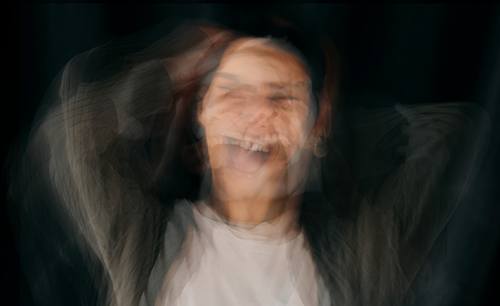A panic attack is an intense episode of fear and distress that can last up to 30 minutes and can include a racing heartbeat, rapid breathing, sweating, trembling, dizziness, chest pain, nausea, chills, hand tingling, and a feeling of dread. It can be caused by a phobia, chronic stress, low self-esteem, anxiety, depression, obsessive-compulsive disorder (OCD), or Post-traumatic stress disorder (PTSD) and triggered by a past trauma. Effects of a panic attack can linger for hours after the episode.
Those who regularly have panic attacks may find help with antidepressant medication and cognitive behavioral therapy (CBT). A physician can help rule out other medical conditions. If the panic attack is thought to be a heart attack, which often results from physical exertion rather than emotional stress and includes persistent chest pain, call 911.
You can support someone having a panic attack by staying calm to keep them calm, staying with them until the panic attack ends to help them feel safe, walking through breathing exercises to slow their breathing, distracting them by counting with them or naming objects in the room, letting them know you’re there for them and asking what they need, and getting them water.
Deb Falzoi
trauma, therapy, adhd, emdr, ptsd, grief, loss, sad, bullying, school, feelings, therapist, worcester, holden, shrewsbury, work, stress, anxious, anxiety, childhood, boundaries, addiction, relationship, coping, boston, anxiety, depression, adoption, emotions, mental health, divorce, perfectionism, college, student, teen, cbt, dbt, ipt, behavioral, panic, attack, west boylston, rutland, paxton, boylston, clinton, sterling, princeton, hubbardston, lancaster, central massachusetts, massachusetts

